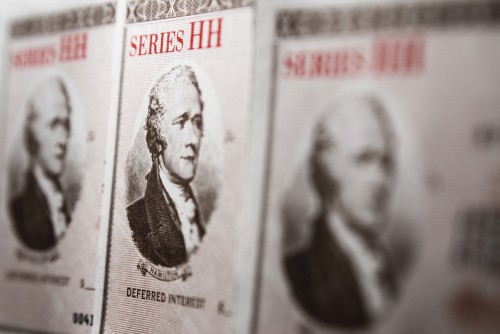Is it the only game in town? The trade war between the US and China has no signs of stopping any time soon; in fact, it’s getting increasingly hotter. Each nation is looking for a new financial arsenal to go ahead of the other.
Our Forex Signals
1 - month
Subscription
 Up to 15 signals daily
Up to 15 signals daily 76% success rate
76% success rate Entry, take profit & stop loss
Entry, take profit & stop loss Amount to risk per trade
Amount to risk per trade Risk reward ratio
Risk reward ratiomonth
3 - month
Subscription
 Up to 15 signals daily
Up to 15 signals daily 76% success rate
76% success rate Entry, take profit & stop loss
Entry, take profit & stop loss Amount to risk per trade
Amount to risk per trade Risk reward ratio
Risk reward ratiomonth
 Most popular
Most popular
6 - month
Subscription
 Up to 15 signals daily
Up to 15 signals daily 76% success rate
76% success rate Entry, take profit & stop loss
Entry, take profit & stop loss Amount to risk per trade
Amount to risk per trade Risk reward ratio
Risk reward ratiomonth
Lifetime
Subscription
 Up to 15 signals daily
Up to 15 signals daily 76% success rate
76% success rate Entry, take profit & stop loss
Entry, take profit & stop loss Amount to risk per trade
Amount to risk per trade Risk reward ratio
Risk reward ratioSeparate Swing Trading Group
 Up to 3 signals weekly
Up to 3 signals weekly 76% success rate
76% success rate Entry, take profit & stop loss
Entry, take profit & stop loss Amount to risk per trade
Amount to risk per trade Risk reward ratio
Risk reward ratiomonth
1 - month
Subscription
 Up to 15 signals daily
Up to 15 signals daily 76% success rate
76% success rate Entry, take profit & stop loss
Entry, take profit & stop loss Amount to risk per trade
Amount to risk per trade Risk reward ratio
Risk reward ratiotime
Eightcap - Regulated Platform With Tight Spreads

- Minimum deposit of just 250 USD to get lifetime access to all the VIP channels
- Use our Secure and Encrypted Infrastructure
- Spreads from 0.0 pips on Raw Accounts
- Trade on the Award-Winning MT4 & MT5 Platforms
- Multi-jurisdictional Regulation
- No Commission Trading on Standard Accounts

In the last few decades, China has slowly but steadily accumulated US treasury securities, and up to now, the country owns over $1.10 trillion- about 5% of the $22 trillion of the US national debt.

These figures merely represent the highest number of any other foreign country.
Now, is China trying to “buy out” the US markets via its debt accumulation, or simply it’s a case of forced acceptance.
This is the kind of question that is spreading fear across investors and analysts that China – the world’s largest manufacturing hub as well as the export-driven economy, could dump the treasuries in relation and that the weaponization of its holdings will likely get the interest rates higher, which will potentially, hurt the economic growth.
State of the Chinese Economics
For several years now, China has been a huge trade surplus with the US, meaning that it sells more goods and services to the United States than the US sells to China.
Therefore, the Chinese exporters receive USD, but they have to change it into the Renminbi or Yuan to locally run operations.
They hence sell the dollars to obtain the RMB, and in the process, they increase the supply of the USD and raise demand for the RMB.
To prevent the imbalance, the people’s Bank of China buys the excess USD in exchange for the Yuan. That way, USD gets scarce, keeping its rates higher, and hence China accumulates the USD as forex reserves.
The Self-Correcting Mechanism
When two currencies are involved in international trading, there’s a self-correcting mechanism.
For instance, when a country imports more than what it exports, its currency gets more supply in the global market leading to value depreciation against other currencies.
Similarly, the exports will be cheaper while the imports are costlier. Therefore, with time, that country will start to export more with fewer imports as a result of the lower-valued currency and hence reversing the whole scenario without or with little intervention from authorities – self-correcting mechanism.
Significance of a Weak Renminbi
China has a vast population, and hence, the country has created a mechanism to generate jobs for continued growth.
Therefore, the critical aspect is maintaining export-led growth, especially to the US, and hence it requires the RMB to continuously have a lower currency concerning the USD, thus offering lower prices.
To become competitive in the market, China can’t afford its RMB appreciating, but instead will keep it low in relation to the USD even though it results in a pileup of the USD as forex reserves.
Use of Reserves
Since China exports to other countries, the Euro is the second largest of its forex reserves.
This pileup helps China earn at least a risk-free rate. With vast amounts of USD, the US treasury securities have offered China the safest investment destination for its Chinese forex reserves.
Since there are several investment destinations, China can easily choose to invest in European debt. Besides, other asset classes such as stocks, real estate, and other countries’ Treasurys are riskier when compared to the US debt.
The dollars can as well be used in other fields such as paying Middle East countries for the oil supplies.
Furthermore, the reason for the continuous buy of the US Treasurys is the mammoth size of the US trade deficit with the People’s Republic of China.
With about $30 billion monthly deficit, Treasurys are the best option for China. Through the buying, it enhances the money supply of China as well as creditworthiness.
The General Impact of Buying US Debt

For the US to continue buying the goods produced by China, there’re loans offered in return.
Therefore, to maintain the export-driven economy, China will keep on piling USD as well as the US debt. Either way, it’s a win-win scenario for both countries.
China gets a massive market for its locally produced products, while the US benefits from the economical prices of those goods.
The Risk Perspective
In the case that China puts a hold on Treasurys or dumps its US forex reserves, its trade surplus will most likely become a trade deficit, hence becoming even worse.
Therefore, the latest news of China increasingly holding US Treasurys or Beijing dumping them is something out of order.
Nevertheless, if such a scenario was to happen, the debt securities and dollars wouldn’t vanish, but would instead reach other vaults.
Moreover, the fact that the US has the limitless authority of printing any amount of money, China needs to be watchful loaning out to them as high inflation in the US would result in adverse effects such as real payment value.
AvaTrade - Established Broker With Commission-Free Trades

- Minimum deposit of just 250 USD to get lifetime access to all the VIP channels
- Awarded Best Global MT4 Forex Broker
- Pay 0% on all CFD instruments
- Thousands of CFD assets to trade
- Leverage facilities available
- Instantly deposit funds with a debit/credit card

The Bottom Line
Economic dependencies, as well as geopolitical realities, usually result in exciting scenarios in the international arena. For instance, the continuous purchase of the US debt with treasury bonds by China is one of them.
Interestingly, despite the two countries’ well-known political rivalry, willingly or unwillingly, they’re locked in an inter-dependency state whereby they both benefit and are most likely to continue.